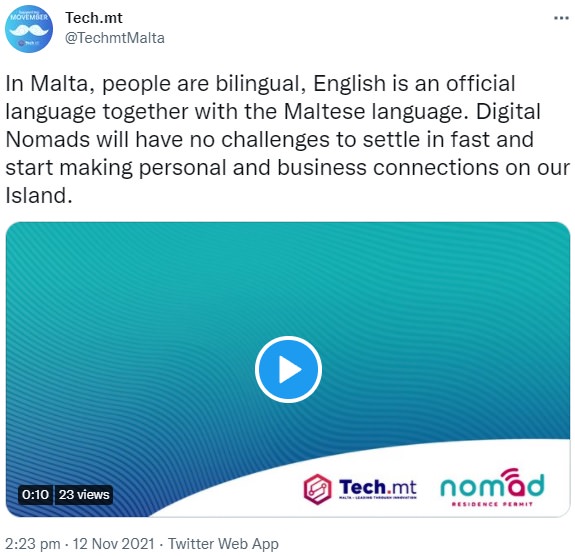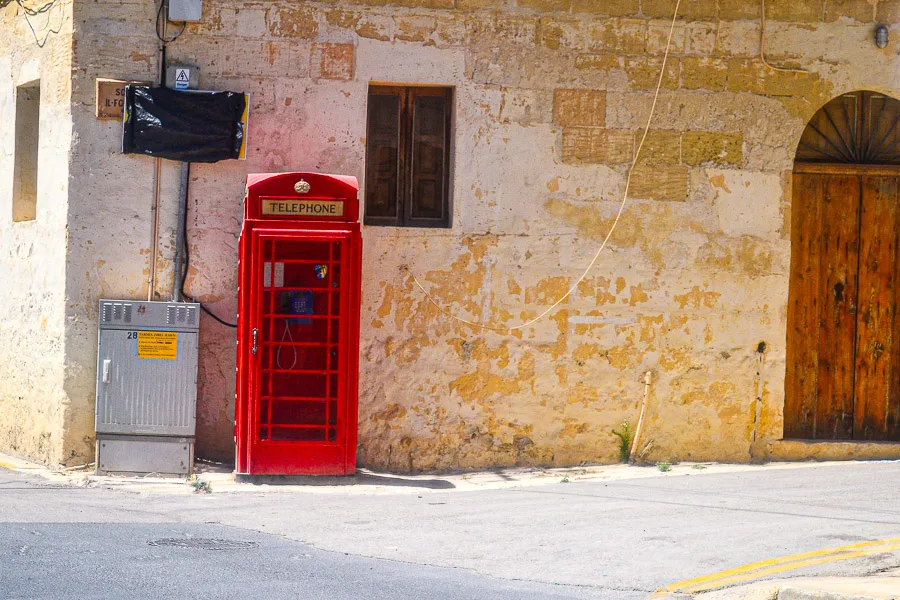Malta, a small yet culturally rich island nation in the Mediterranean Sea, boasts a fascinating linguistic landscape. The country's official languages, Maltese and English, play a significant role in shaping its identity. But what language do they really speak in Malta? This article dives deep into the languages spoken across the islands, exploring their history, usage, and cultural significance.
Understanding the languages spoken in Malta is more than just a linguistic curiosity. It offers insight into the country's rich history, influenced by various civilizations over centuries. From the ancient Phoenicians to the Knights of St. John and the British Empire, Malta's language evolution reflects its diverse heritage.
This guide aims to provide a thorough exploration of Malta's linguistic environment, helping travelers, expats, and language enthusiasts alike understand the nuances of communication in this vibrant nation. Let's explore what makes Malta's language scene so unique.
Read also:Horrible Relationship Quotes Understanding Toxicity And Moving Forward
Table of Contents
- Official Languages in Malta
- The History of Language in Malta
- Language Use in Daily Life
- Languages in Education
- The Role of Language in Tourism
- Sub-Dialects and Regional Variations
- Foreign Languages Spoken in Malta
- Language Statistics in Malta
- Tips for Communicating in Malta
- Conclusion
Official Languages in Malta
Malta recognizes two official languages: Maltese and English. These languages are used in government, education, and media, making them integral to daily life. Maltese, a Semitic language with Italian and English influences, is unique to the Maltese islands. English, on the other hand, serves as a bridge to the international community and is widely spoken by locals.
Maltese: The National Language
Maltese is the national language and is spoken by the majority of the population. It has roots in the Siculo-Arabic language but has evolved significantly over time. The language incorporates words from Italian, French, and English, reflecting Malta's historical ties with these countries.
English: A Lingua Franca
English plays a crucial role in Malta's communication landscape. It is used in business, tourism, and education, ensuring that Malta remains connected to the global community. Most Maltese citizens are bilingual or even trilingual, thanks to the widespread use of English.
The History of Language in Malta
The history of language in Malta is a tapestry of influences from various civilizations. From the Phoenicians and Romans to the Normans and British, each culture left its mark on the Maltese language.
Phoenician and Roman Influences
The earliest recorded language in Malta was Punic, a dialect of Phoenician. When the Romans arrived, Latin began to influence the local language. These early influences laid the foundation for the linguistic diversity seen today.
Norman and Sicilian Contributions
The Normans introduced Sicilian to Malta, which further enriched the local dialect. This period saw the blending of Arabic and Romance languages, creating a unique linguistic identity.
Read also:Adragon Demello A Comprehensive Look At The Chess Prodigy
Language Use in Daily Life
In daily life, Maltese and English are seamlessly integrated. Most Maltese people switch effortlessly between the two languages, depending on the context. This phenomenon, known as "code-switching," is common in conversations and media.
Code-Switching in Conversations
Code-switching allows Maltese speakers to express themselves more naturally. For instance, a conversation might start in Maltese and switch to English for technical terms or modern expressions. This flexibility enhances communication and reflects the bilingual nature of Maltese society.
Media and Entertainment
Media in Malta is predominantly in Maltese and English. Newspapers, television, and radio cater to both languages, ensuring accessibility for all audiences. This dual-language approach strengthens the cultural bond between the two official languages.
Languages in Education
Education in Malta is bilingual, with both Maltese and English used as mediums of instruction. This system ensures that students are proficient in both languages by the time they graduate.
Primary and Secondary Education
In primary schools, Maltese is the primary language of instruction, while English is introduced as a second language. By secondary school, students are expected to be fluent in both languages, preparing them for higher education and the workforce.
Higher Education
At the university level, English is often the primary language of instruction, especially for courses with international students. This approach aligns Malta with global educational standards and attracts students from around the world.
The Role of Language in Tourism
Tourism is a cornerstone of Malta's economy, and language plays a vital role in this sector. The ability to communicate in multiple languages enhances the tourist experience and attracts visitors from diverse backgrounds.
Language Skills of Tourists
Maltese locals are adept at speaking multiple languages, including Italian, French, and German, in addition to Maltese and English. This linguistic versatility ensures that tourists feel welcome and understood, regardless of their native tongue.
Language Services for Tourists
Hotels, restaurants, and tourist attractions often provide services in various languages. Signage, menus, and information brochures are frequently translated into English, Italian, and other languages, making Malta an accessible destination for international travelers.
Sub-Dialects and Regional Variations
While Maltese is the primary language spoken across the islands, regional variations exist. These dialects reflect the unique cultural identity of different areas within Malta.
Regional Dialects
Regions like Gozo and rural parts of Malta have distinct dialects that differ slightly from the standard Maltese spoken in urban areas. These variations are often characterized by unique pronunciation and vocabulary.
Preservation of Dialects
Efforts are being made to preserve these dialects as part of Malta's cultural heritage. Language enthusiasts and linguists study these variations to document their significance and ensure they are not lost over time.
Foreign Languages Spoken in Malta
In addition to Maltese and English, several foreign languages are spoken in Malta. These include Italian, French, and German, among others. The prevalence of these languages is due to Malta's historical ties and its status as a popular tourist destination.
Italian Influence
Italian has a strong presence in Malta, thanks to historical connections and proximity. Many Maltese people learn Italian as a third language, enhancing their linguistic repertoire.
Other Languages
French and German are also spoken by a segment of the population, particularly among those who have studied abroad or work in international settings. These languages contribute to Malta's multilingual environment.
Language Statistics in Malta
Data from the Central Statistics Office of Malta highlights the linguistic diversity of the nation. According to recent surveys:
- 90% of Maltese citizens speak Maltese.
- 88% speak English.
- 66% speak Italian.
- 17% speak French.
These statistics underscore the importance of bilingualism and multilingualism in Maltese society.
Tips for Communicating in Malta
For visitors and expats, understanding the language landscape in Malta can enhance their experience. Here are some tips for effective communication:
- Learn basic Maltese phrases to show respect for the local culture.
- Be prepared to communicate in English, as it is widely understood.
- Use Italian or French if you are familiar with these languages, as they are appreciated in certain contexts.
- Carry a translation app or phrasebook for emergencies.
Conclusion
Malta's linguistic diversity is a testament to its rich history and cultural heritage. The coexistence of Maltese and English, along with other foreign languages, creates a vibrant communication environment. Understanding what language they speak in Malta is key to appreciating the country's identity and connecting with its people.
We invite you to share your thoughts and experiences in the comments section below. Have you visited Malta and encountered its linguistic diversity? What was your experience like? Don't forget to explore other articles on our site for more insights into global cultures and languages.


